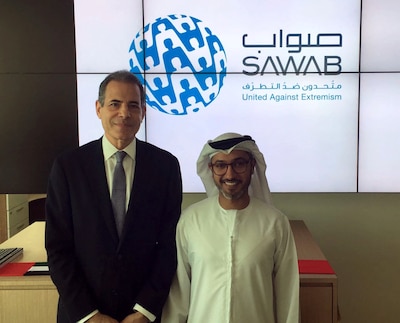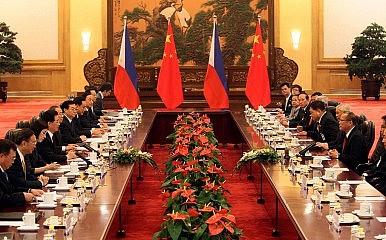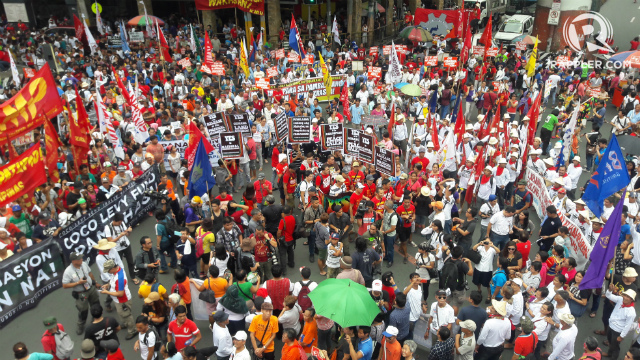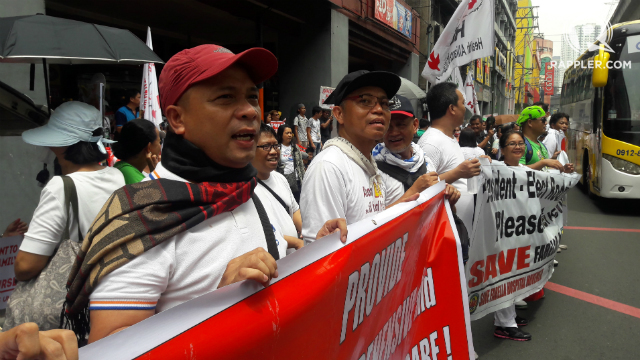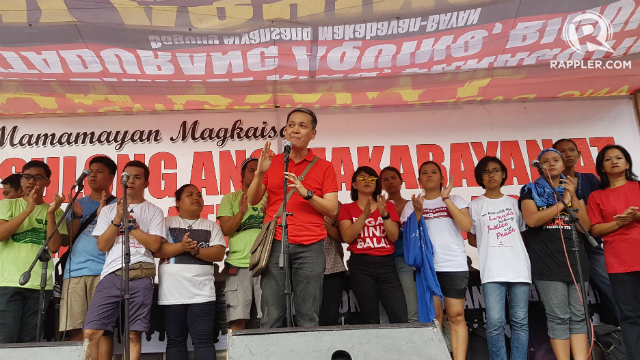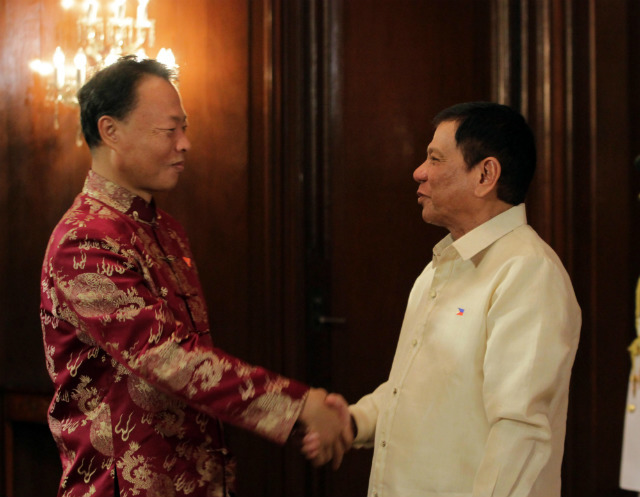From the Council on Foreign Relations (Jun 29):
CFR Backgrounders: The U.S.-Philippines Defense Alliance (By Eleanor Albert, Online Writer/Editor)
Intro
The United States and the Philippines have a long-lasting and complex security relationship. Based on a defense treaty forged in the early years of the Cold War, Washington and Manila conduct joint exercises and other forms of military training to bolster the preparedness of the Armed Forces of the Philippines (AFP) in response to crises and humanitarian disasters. The relationship is also seen as a pillar of the U.S. strategic rebalance to Asia. The U.S. military provides vital security to the Philippines at a time of
tensions over maritime sovereignty and lingering concern over militant forces in the country. The alliance also grants the United States a foothold to better promote stability and peace in an increasingly volatile region.
From Conflict to Partnership
The Philippines, an archipelago nation of more than one hundred million people and former Spanish colony, became a U.S. territory in 1898 after the Spanish-American War. Spain
transferred control of the Philippines Islands to the United States in exchange for $20 million, renounced its claim to Cuba, and ceded the territories of Puerto Rico, Guam, and Hawaii. The United States then battled Philippine revolutionary forces in a three-year war to consolidate control. The United States oversaw a civilian administration of the Philippines from 1902 until 1935.
The 1934
Tydings-McDuffie Act (PDF) outlined a framework for formal independence within ten years, including provisions for a sustained U.S. military presence post-independence. Presidential elections were held in 1935, and Manuel Quezon became the leader of the newly created Commonwealth of the Philippines, intended to serve as a transitional government. Independence plans were halted by the Japanese invasion and occupation from 1941 to 1945. After U.S. and Philippine soldiers defeated imperial Japan, the Philippines was granted official independence on July 4, 1946.
The Origins of a Defense Relationship
U.S. Ambassador to the Philippines Paul McNutt and Philippine President Manuel Roxas signed a Military Base Agreement in March 1947 granting the United States the right to establish bases at more than a dozen locations. A separate treaty on U.S. military assistance to the Philippines followed with details on the training and development of the AFP.
The 1951
Mutual Defense Treaty supplemented the bases agreement. It emphasizes a mutual commitment to peacefully resolve international disputes, separately or jointly developing capacity to resist attack, and the need for consultation when the territorial integrity, political independence, or security of the United States or the Philippines is under threat of attack in the Pacific.
Interpretations of U.S. treaty language have been the subject of long-standing, unresolved differences. The 1951 treaty establishes collective self-defense obligations but specifies that any armed attack includes one on "metropolitan territory" or "island territories" under the jurisdiction of either party in the Pacific. Differences in interpretation arise from the fact that the United States does not explicitly state whether Philippine-claimed disputed territory falls under the provisions of the mutual defense treaty. Some of these territorial claims were made in the 1970s, decades after the treaty was ratified.
Manila remains unsatisfied with conservative U.S. interpretations because it believes that the treaty's geographic scope should be extended to the disputed territories, according to legal expert Jay Batongbacal of the University of the Philippines College of Law. This discrepancy "leads to other criticisms, such as the nature and extent of U.S. military assistance, the legal and constitutional processes for implementing treaty obligations, and expectations of an automatic U.S. response in case of an actual threat," Batongbacal says.

The U.S.-Philippines defense agreements were among the United States' first major security treaties in the Asia-Pacific and served as the cornerstone of U.S. policy to maintain regional peace and security after WWII. Throughout the Cold War, Philippine outposts were major
staging areas (PDF) for land, sea, and air forces during the Vietnam War. At the height of U.S. deployment in the 1980s, there were between thirteen and fifteen thousand military personnel and twelve thousand Department of Defense civilians based in the Philippines.
U.S. bases remained operational until 1992 when negotiations broke down between Washington and Manila. A rise in anti-U.S. sentiment led the Philippine Senate to narrowly vote down a treaty to renew the lease for U.S. facilities. The deal's rejection marked a symbolic end to what some in the Philippines viewed as the residual legacy of U.S. colonialism but did not affect steady cooperation on defense issues.
The 1998
Visiting Forces Agreement allowed U.S. and Philippine forces to carry out joint exercises. The military forces now participate in annual "shoulder-to-shoulder" exercises known as Balikatan that focus on training and capability enhancement for addressing crises or natural disasters. Australian military personnel joined U.S. and Philippine forces for Balikatan 2014. The United States and the Philippines also conduct Cooperation and Afloat Readiness and Training (CARAT) Exercises to boost the
interoperability of land, sea, and air capabilities.
Washington and Manila signed the Enhanced Defense Cooperation Agreement (EDCA) in 2014, a ten-year deal which allows a strengthened U.S. military presence in the Philippines, with increased rotating U.S. military personnel and military assistance devoted to humanitarian and maritime operations. The deal grants U.S. troops broad access to bases at the invitation of the Philippine government and will allow for the construction of new and improved facilities. Despite some popular
opposition to the deal over its
constitutionality, the Philippine Supreme Court
voted 10-4 in January 2016 to uphold the agreement.
Friction With Hosts
Close military cooperation between the United States and the Philippines has not been hassle free. A recent series of incidents between U.S. military personnel and local communities has been an irritant. A rape case concerning a Filipina woman in 2005 and the killing of a transgender Filipina woman in 2014, both involving U.S. Marines, soured ties. These incidents are rallying points for nationalist and left-wing factions who say the United States' extended military presence violates Philippine sovereignty. Some government officials, militant groups, lawyers, and representatives of religious and academic communities have
questioned the legality of the 2014 EDCA and fear that it will bring the return of a
permanent presence of foreign troops to the Philippines.
Despite these frictions, the overwhelming majority of Filipinos and members of the security apparatus hold positive views of the United States, including its military, according to experts. "The Philippines is among the most enthusiastic [nations] for a more proactive global role for the United States," says Richard Javad Heydarian, assistant professor at De La Salle University in Manila. Favorability of the United States hit a high of
92 percent among Filipinos, according to 2015 Pew Research Center figures. Still, a collective memory of the U.S. colonial period lingers. "These sensitivities are just below the surface," says Ernest Bower, Senior Advisor of the Southeast Asia Program at the Center for Strategic and International Studies (CSIS).
Renewing Ties
The Philippines has struggled to manage confrontations with insurgent groups, like the Moro National Liberation Front and the Moro Islamic Liberation Front, and terrorist groups, such as the Abu Sayyaf group and Jemaah Islamiyah, particularly in its southern regions. The 1998 Visiting Forces Agreement brought a fresh face to the U.S.-Philippines defense relationship, but the September 11, 2001, terror attacks in the United States, which spurred global U.S. actions against terrorism, was a catalyst for deepening the bilateral alliance at a time when Manila faced significant internal security threats.
Starting in 2002, U.S. military personnel were deployed to the Philippines to advise and assist the AFP as part of Operation Enduring Freedom, a broad program to eradicate terrorism cells in the aftermath of 9/11. Despite occasional attacks and kidnappings by insurgents and terrorists, the program is widely considered a success; the Joint Special Operations Task Force-Philippines officially came to a
close in spring 2015. U.S. assistance to the Philippines now largely centers on overcoming governance challenges, such as corruption and judicial reform. There is a renewed emphasis on the importance of cooperating on counterterrorism operations in light of a
rise of
sympathizers of the self-proclaimed Islamic State on the southern island of Mindanao.
"The Philippines is among the most enthusiastic [nations] for a more proactive global role for the United States," said Richard Javad Heydarian, assistant professor, De La Salle University
The U.S. military also plays a vital role in humanitarian and natural disaster response for the country. The United States provided more than
$87 million (PDF) in humanitarian assistance after Typhoon Haiyan in November 2013. The U.S. military delivered essential
relief supplies and equipment, including emergency shelter material and food, and coordinated the transportation of relief workers and rescue of survivors. The typhoon, also known as Yolanda, was the
deadliest tropical cyclone in the Philippines, killing more than six thousand
people and
displacing (PDF) more than four million others.
China's recent territorial assertiveness has brought renewed attention to U.S.-Philippines ties. "Our long-running defense alliance has been a
cornerstone of peace and stability in the region," said U.S. Secretary of Defense Ashton Carter in April 2016. Obama administration officials have publicly described the U.S. commitment to the Philippines as "
ironclad."
The strengthening of the U.S.-Philippines relationship is part of a larger strategic shift in U.S. foreign policy to Asia. This shift, known as the rebalance or pivot, is driven by security and economic interests. Washington has emphasized strengthening existing security ties and building new ones in the region. Simultaneously, the United States is seeking to conclude and implement the Trans-Pacific Partnership (TPP), an extensive multilateral, high-standard free trade agreement. The Philippines, though not a TPP member, has expressed
interest in joining the pact. Bilateral trade between the United States and the Philippines is more than
$20 billion annually and since the 1980s, Filipinos rank among the
top immigrant groups to the United States (there were 1.9 million Philippine-born immigrants in the United States, according to 2014 figures, accounting for 4.5 percent of immigrants).
The China Factor
Under Chinese President Xi Jinping, Beijing has become more assertive on territorial claims. The Philippines is one of a handful of claimants to rocks and land formations in the
South China Sea, including the Spratly Islands and Scarborough Shoal. China has pursued a program of aggressive
island building on these territories while resolution mechanisms under the auspices of
ASEAN, a regional political and economic organization, have failed to settle territorial disputes.

China submitted a map of its territorial claims in disputed waters to the United Nations in 2009, asserting its claims based on the controversial
"nine-dash" line (PDF). A
standoff between China and the Philippines erupted in April 2012 following an incident between Chinese fishermen and Philippine authorities. Manila then
filed (PDF) the first international arbitration case under the UN Convention and Law of the Sea against China's South China Sea claims in January 2013. For its part, Beijing has suggested that it will not abide by the ruling and that the tribunal does not have jurisdiction on these issues.
Efforts to reduce tension and build confidence have faltered. In the Philippines, citizens increasingly view China as a security threat. Experts say China's unprecedented scale of land reclamation; construction of island airstrips, piers, and surveillance structures; and
naval modernization (PDF) have expanded its power projection capabilities. The United States is increasing naval and aerial patrols in the South China Sea area in a bid to protect freedom of navigation, including the sending of
carrier strike groups, bombers, and electronic attack aircraft. At the same time, the United States also maintains military-to-military contacts with China to avoid misunderstandings or provocations.
"These alliances are the bedrock of the United States' foreign policy [in Asia] and the Philippines relationship is crucial."—CSIS's Ernest Bower
Security in the Asia-Pacific
U.S.-Philippines ties are likely to remain a pillar of U.S. security policy in Asia for years to come. The alliance is among the United States' five defense pacts in the region, including agreements with Australia, Japan, South Korea, and Thailand. "These alliances are the bedrock of the United States' foreign policy [in Asia], and the Philippines relationship is crucial," says CSIS's Bower.
Manila has made a concerted effort to improve its armed forces. In late 2012 the Philippines passed a revised
AFP Modernization Act (PDF) for the acquisition of equipment and weapons systems to boost naval, air force, and army capabilities to establish what the military prescribes as a "
minimum credible defense." Defense spending in the Philippines more than tripled from 1998 to 2015, from $1.2 billion to $3.8 billion, according to
Stockholm International Peace Research Institute estimates. The archipelago would like to be self-reliant, but the AFP have substantial ground to cover.
Traditionally, the AFP, like a number of neighbors, focused on internal threats to protect the country and were dominated by the army. More recently, Southeast Asian militaries, including that of the Philippines, have reoriented their focus to include maritime domain awareness.
Still, the
Philippines military has been described by the Jamestown Foundation and other analysts as one of the world's
weakest, plagued by insufficient
funds and
endemic corruption. According to Heydarian, Manila has a hard time keeping pace with other defense forces in the region, particularly China's, causing it to rely more heavily than ever on the United States to ensure its national security. The Philippines has also built closer exchanges with other regional partners, including
Australia and
Japan.
Though the United States and the Philippines both face leadership transitions in the months ahead, defense ties are expected to remain strong. Nevertheless, Bower says U.S. and Philippine leaders alike must make a strong case to their people on the importance of maintaining this historic relationship as part of an effort to build a regional security network across a spectrum of capabilities, budgets, personnel, and expertise.
Additional Resources
CSIS's Asia Maritime Transparency Initiative tracks the Philippines' arbitration proceedings against Chinese maritime claims in the South China Sea.
Jay L. Batongbacal presents an explainer of the Philippines international arbitration case against China’s South China Sea maritime claims in this 2015 article.
This CFR Interactive by Joshua Kurlantzick explores the distribution of security assistance to Southeast Asia since the Obama administration's rebalance to Asia.
This May 2014 Congressional Research Service report (PDF) looks at U.S. interests in the Republic of the Philippines.
http://www.cfr.org/philippines/us-philippines-defense-alliance/p38101
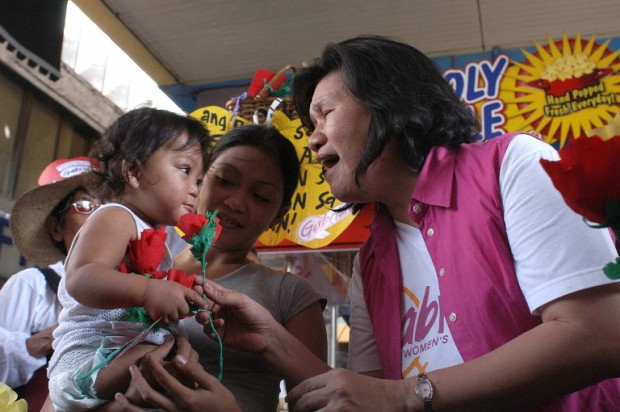



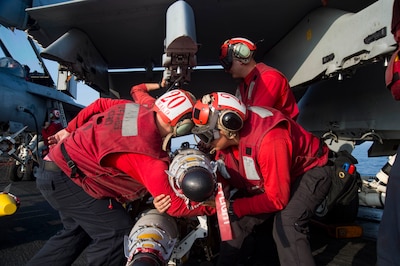

 Download Image
Download Image  Image details page
Image details page 